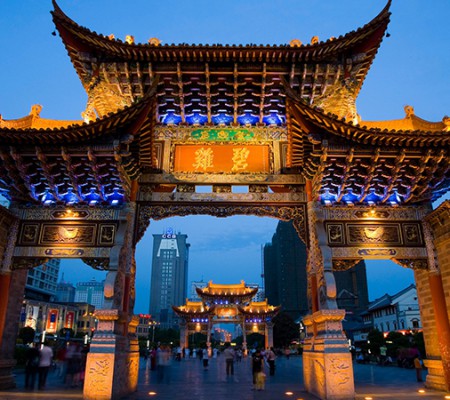Budapest
Budapest Overview
Chinese Name: English IPA: Location: Population (city): Language: Zip code: Tel code: Time zone:
Traveling from Budapest (Hungary) to the main cities of China involves several options, as there are no direct flights from Budapest to China. However, there are plenty of connecting flights via major international hubs. Here’s how you can plan your trip:
1. By Air:
Budapest Ferenc Liszt International Airport (BUD) is Hungary’s main international airport, offering several flight connections to China with layovers in other major hubs.
a) Direct Flights from Budapest to China: Although there are no direct flights between Budapest and Chinese cities, there are direct flights from other European cities like London, Frankfurt, or Vienna, which you can connect to in order to reach major cities in China.
b) Connecting Flights: Most travelers will need to take connecting flights through major international hubs. Here are some of the most common routes:
- Via Vienna (Austria): Austrian Airlines offers direct flights from Vienna (VIE) to Beijing (PEK) and Shanghai (PVG). You can take a short flight from Budapest to Vienna, then board your flight to China.
- Via Frankfurt (Germany): Lufthansa operates flights from Budapest (BUD) to Frankfurt (FRA), where you can take connecting flights to cities like Beijing, Shanghai, Guangzhou, or Hong Kong.
- Via Doha (Qatar): Qatar Airways offers flights from Budapest to Doha (DOH), followed by connecting flights to Beijing, Shanghai, Hong Kong, or other cities in China.
- Via Dubai (UAE): Emirates offers flights from Budapest to Dubai (DXB), where you can catch onward flights to Beijing, Shanghai, Guangzhou, or Hong Kong.
- Via Istanbul (Turkey): Turkish Airlines offers flights from Budapest to Istanbul (IST), and from there, you can connect to flights to several Chinese cities.
- Via London (UK): British Airways operates flights from Budapest to London Heathrow (LHR), from where you can connect to flights to cities in China.
2. Flight Duration:
- Budapest to Beijing: Connecting flights typically take around 10–12 hours, depending on layover time.
- Budapest to Shanghai: Usually takes about 9–11 hours with a layover.
- Budapest to Guangzhou: Typically takes 11–12 hours with layovers.
- Budapest to Hong Kong: The total travel time with layovers is generally around 11–13 hours.
- Budapest to Chengdu: Flight time is usually around 10–12 hours with connecting flights.
3. Visa Requirements:
- Chinese Visa: Hungarian citizens will need a Chinese visa to visit mainland China. The most common types of visas for tourism are the tourist visa (L visa) or business visa (M visa). You can apply for a visa in advance at the Chinese consulate or embassy.
- Visa processing usually takes about 4–7 working days.
- Documents typically required for the visa application include your passport, completed visa application form, photos, travel itinerary, hotel bookings, and sometimes an invitation letter from a host in China.
- Hong Kong: If you’re traveling to Hong Kong, Hungarian passport holders do not need a visa for stays of up to 90 days. However, for traveling to mainland China from Hong Kong, a Chinese visa is required.
4. Main Cities in China to Visit:
After arriving in China, you can visit some of the country’s major cities, including:
- Beijing: The capital, known for historical landmarks like the Great Wall, Forbidden City, and Temple of Heaven.
- Shanghai: A modern metropolis with iconic skyscrapers like the Shanghai Tower and famous sites such as The Bund and Yu Garden.
- Guangzhou: Famous for its Cantonese cuisine, Canton Tower, and proximity to Hong Kong.
- Hong Kong: A vibrant, cosmopolitan city known for shopping, sightseeing, and blending traditional and modern culture.
- Chengdu: Known for its spicy Sichuan cuisine and the Giant Panda Breeding Research Base.
- Shenzhen: A major tech hub and vibrant city near Hong Kong.
5. Travel Tips:
- Language: Mandarin Chinese is the official language of China. Although English is spoken in major cities, it may not be common in smaller towns, so it can be helpful to learn basic phrases or use a translation app.
- Currency: The currency in China is the Chinese Yuan (CNY). It’s advisable to have cash in local currency, although mobile payment systems like Alipay and WeChat Pay are widely accepted in urban areas.
- Time Zone: China follows China Standard Time (CST), which is GMT+8. This is 6 hours ahead of Budapest, which is on Central European Time (CET, GMT+1).
6. Transportation within China:
- High-Speed Rail: China’s high-speed rail network is extensive and one of the fastest ways to travel between major cities such as Beijing, Shanghai, Guangzhou, and Chengdu.
- Domestic Flights: For longer distances, domestic flights between cities are common and relatively affordable.
- Public Transport: Most cities have efficient metro systems, buses, and taxis. For larger cities like Beijing and Shanghai, public transport is widely used.
7. Health and Safety:
- Travel Insurance: It’s advisable to have travel insurance that covers health and emergency situations.
- Covid-19 Regulations: Before booking flights, check for any Covid-19 restrictions, such as health checks, quarantine, and testing requirements, as these may change from time to time.
8. Alternative Routes (Overland Travel):
Overland travel from Budapest to China is possible but complex and time-consuming. It would involve crossing several countries, such as Russia or Kazakhstan, and acquiring multiple visas for transit. This route is only for those seeking a long and adventurous journey across Central Asia.
Let me know if you need further details regarding flight options, visa processes, or travel tips for specific cities in China!























